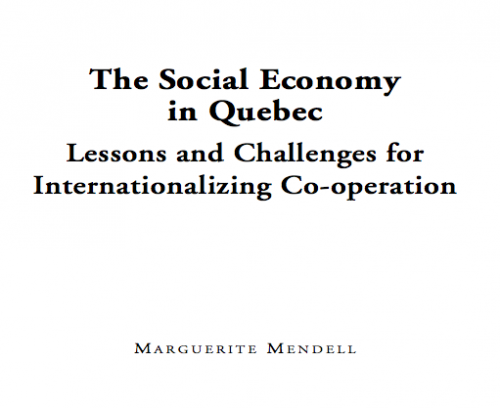The Social Economy in Quebec presents lessons and challenges for internationalizing co-operation. This paper provides an overview of the contemporary social economy in Quebec, its many achievements and results in terms of job creation and the promotion of collective enterprise. The focus, however, is on the evolution of the social economy in Quebec as a process. The analysis highlights the many elements that have allowed the social economy to assume the place it occupies in Quebec society today and the challenges that it confronts. The process of its evolution has been and will continue to be vital to the progress of the social economy in Quebec, and it is this process that provides important lessons for other regions.
The experience in Quebec demonstrates the importance and the variability of institutional contexts in which the social economy emerges; in Quebec, alliances between social movements, labour, the co-operative movement and the community sector and, most significantly, the construction of an institutional context for multistakeholder partnerships committed to a framework of “distributed governance” have been critical to the development of the social economy. Social economy actors are engaged in institutional innovation at several levels, not the least of which is the creation of a network of networks, the Chantier de l’économie sociale, and the development of enabling instruments — finance, training, business services, and research. They are re-embedding the economy in social contexts, designing sustainable approaches to development that meet the needs and desires of communities, and developing the appropriate tools to achieve this objective. This innovation and development represents the architecture of the social economy in Quebec today.





